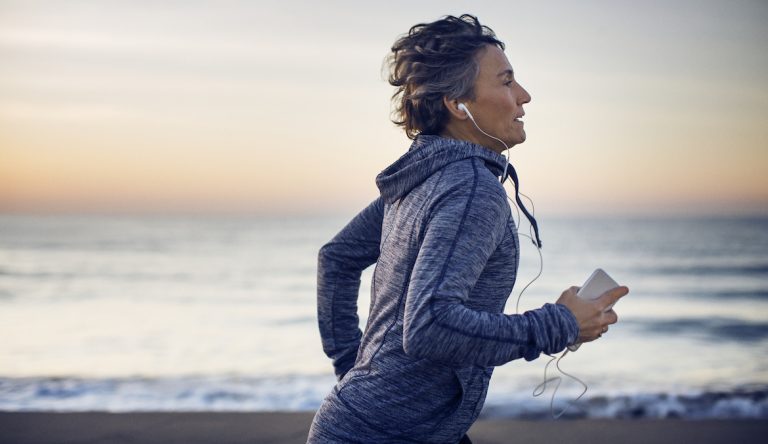
[ad_1]
However, a new study suggests that exercise on its own could help your health and longevity endeavors, even if you don’t always catch as many zzzs as you’d like.
The research, published in the European Journal of Preventive Cardiology, analyzed the behavior of over 92,000 adults between the ages of 40 and 73. The subjects wore a wristband that cataloged their physical activity and sleep for one week. Then, the study authors followed up seven years later. The lowest mortality rates (meaning the smallest percentage of people who had died) were seen among those who got a normal six to eight hours of sleep per night and 150 minutes of moderate or vigorous activity per week. Death was more likely in those who slept too little or too much, and who did not exercise.
Not a surprise, right? But a standout finding was that, in fact, exercise also benefits longevity all on its own: In groups that did not get enough sleep, but did meet the moderate or vigorous physical activity recommended guidelines, there was lower mortality.
“Either a higher volume of [physical activity], or moderate-to-vigorous [physical activity] reaching the WHO-recommended level…attenuated the excessive mortality risks associated with short or long sleep duration,” the study reads. Meaning: Getting in more exercise could reduce the negative impact of bad sleep habits.
This is not your signal to sacrifice sleep for exercise; the ideal formula is getting enough of both. But maybe if you are sleep deprived, but can find ways to log those reps or miles on, you can rest a little easier knowing you’re still helping your body out when the sleep stars don’t align.
[ad_2]
Source link